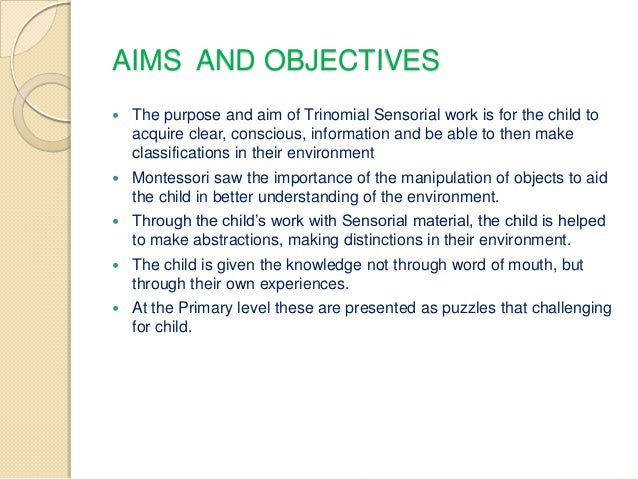Objectives Motessori Program
Nearly 100 years ago in Italy, Dr. Maria Montessori, through observation and experimentation, began to work out a set of educational principles which had special application to pre-school children.
Soon, Montessori schools were established in Europe, Asia, and the United States. Briefly, the Montessori approach rests upon these points:. Very young children experience sensitive periods during which they learn more easily than at an earlier or later time in their lives. Children should be introduced to the world of learning through a prepared environment, in which specially designed apparatus and techniques are used to engage the child's mind at a given level of readiness in mastering a variety of tasks. Discipline is a point of arrival, not of departure. Inner-discipline cannot be achieved effectively except in an atmosphere of freedom. The children learn to work by themselves in the prepared environment of the class while enjoying the presence of other children.
Since 1966, The Montessori School of Windsor has provided quality education and child care services for infants, toddlers and preschoolers. We promote intellectual.
Their learning tasks center on the use of many materials, which are so designed that they test their understanding and correct their errors at every step in the learning process. The teacher prepares the environment, directs the activity and offers the child stimulation, but it is the child who learns through the motivation that he finds in the work itself. Objectives The objectives of the Montessori School of Windsor are to promote the intellectual, the social, the emotional and the physical development of the child.
- Home Education What are the Goals and Objectives of a Montessori Education? The Alden Montessori School is a great option for any parent considering the.
- Video: What is Montessori Curriculum? Program Information. What Is an IEP? - Definition, Examples & Objectives.
Goals of a Montessori School The main purpose of a Montessori school is to provide a carefully planned, stimulating environment which will help the child develop an excellent foundation for creative learning. The specific goals for the children who attend a Montessori school are presented below. Developing a positive attitude toward school Most of the learning activities are individualized: i.e., each child engages in a learning task that particularly appeals to himbecause he finds the activities geared to his needs and level of readiness.
Consequently, he works at his own rate, repeating the task as often as he likes, thus experiencing a series of successful achievement. In this manner, he build a positive attitude toward learning itself. Helping each child develop self confidence In the Montessori school, tasks are designed so that each new step is built upon what the child has already mastered, thus removing the negative experience of frequent failure.
A carefully planned series of successes builds upon inner confidence in the child assuring him that he can learn by himself. These confidence building activities likewise contribute to the child’s healthy emotional development.

Assisting each child in building a habit of concentration Effective learning presupposes the ability to listen carefully and to attend to what is said or demonstrated. Through a series of absorbing experiences, the child forms habits of extended attention, thus increasing his ability to concentrate. Fostering an abiding curiosity In a rapidly changing society, we will all be students at some time in our lives. A deep, persistent and abiding curiosity is a prerequisite for creative learning. By providing the child with opportunities to discover qualities, dimensions and relationships amidst a rich variety of stimulating learning situations, curiosity is developed and an essential element in creative learning has been established. Developing habits of initiative and persistence By surrounding the child with appealing materials and learning activities geared to his inner needs, he becomes accustomed to engaging in activities on his own.
Choosing A School

Gradually, this results in a habit of initiative – an essential quality in leadership. “Ground rules” call for completing a task once begun and gradually results in a habit of persistence and perseverance for replacing materials after the task is accomplished.
Reggio Emilia
This “completion expectation” gradually results in a habit of persistence and perseverance. Fostering inner security and sense of order in the child Through a well ordered, enriched but simplified environment, the child’s need for order and security is intensely satisfied. This is noticed in the calming effect the environment has on the child.
Since every item in the Montessori classroom has a place and the ground rules call for everything in its place, the child’s inner need for order is directly satisfied.